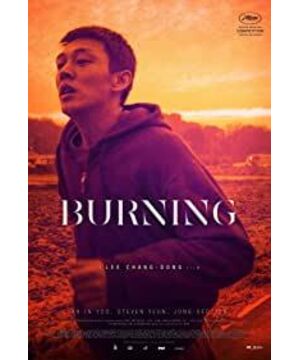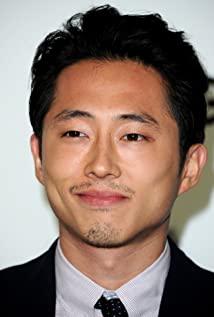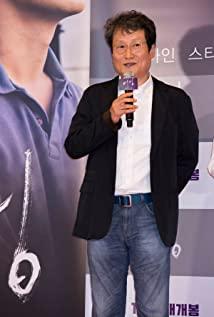"Burning" is very good-looking. So far, Lee Cangdong has not missed his hand. Every one he took out is a masterpiece. He is a writer, poet, and university professor. He also served as the Minister of Culture in Roh Moo-hyun for a year. It is enviable to have such a minister of culture.
"Burning" is adapted from a short story by Haruki Murakami. After watching the movie, I was very curious and went to find the novel to read it. Because I couldn’t find the Taiwanese version and didn’t want to read Lin Shaohua’s translation, I finally read the English version of "The New Yorker". Month number. Haruki Murakami decided to start writing novels in 1978 (29 years old). Putting these points together makes me feel a lot of emotion.
Murakami's novels are very short, with only more than 5,000 words in English. Like Murakami's other works, they are endless and leave a lot of room for imagination. It should be the most abstract one in Murakami's novels I have ever read. It is so extreme that the characters have no names. There are three characters in total, and they are described by you and me. The beer, cars, and food that appeared in it did not even mention the brand. Only a few jazz pieces were mentioned. William Faulkner and "The Great Gatsby" have names.
The plot is very simple: I, a middle-aged married man, accidentally met a friend who had been away for more than ten years, a girl, intermittent contact, a dialogue about pantomime occurred. Later, the girl traveled to Africa and met a boyfriend in Africa when she came back. He is a trader and he is very wealthy. He drives a expensive foreign brand sports car, but he is elegant and approachable. One day he and she suddenly visited my home. I ate, drank beer, and smoked marijuana. The girl was dizzy and went to sleep. There was a conversation between the two men, to the effect that he said that my hobby is to burn the abandoned barn in the wild. I burn it about every two months and watch the firewood The room was turned to ashes, and it felt very refreshing. After I heard it, I felt unbelievable, so I asked him: Why are you telling me? He said, "Are you a writer? I think writers like to listen to all kinds of stories." I asked, where is the wood shed you are going to burn recently? He said: It's near your home, very close. Actually, I came to step on it when I passed by today. Then the girl woke up and they left. After I went back, I bought a map and marked all the wood sheds near my house. I ran to order it once a day, and there was no shortage of one.
After another period of time, the girl suddenly lost contact and disappeared out of thin air. I asked him, and he said, I can't get in touch, but I know she shouldn't be traveling because she has no money and no friends. I was curious: Did the wood shed you mentioned last time burn? He said, "It's burned," I said, "No, there is not one wood shed near me." He said, it may be because you are too close, and you have overlooked it. Usually things that are too close are easy to be overlooked.
I was full of doubts, and then the incident passed. Winter is coming and I am getting old day by day. Finish.
I must thank Li Cangdong. It is this movie that explains many of my doubts when I read Murakami's novels. When I first watched "Norwegian Forest", I had a lot of doubts, those unprovoked love and sorrow, unprovoked suicide. My perception of Murakami's novels at that time was: a delicate depiction of a certain emotion, light and light, without beginning and without end. Now I suddenly understood what he was about to write. The emotions were just the appearance of what I saw. At the same time, I also understood what he said about his creative motives in his "Eggs and the High Wall" speech:
In the final analysis, there is only one reason for me to write a novel, and that is to let the dignity of the individual soul surface and to cast light on it. Always throw light on to sound the alarm to prevent our souls from being entangled and degraded by the system. This is the responsibility of the story, and I believe in it. Constantly trying to make people cry, fear, and laugh by writing stories of life and death, and writing stories of love, to prove the irreplaceability of each soul-this is the job of a novelist. We carefully make up stories for this day after day.
The "Burning" filmed by Li Cangdong based on the novel fixes Murakami's novel to a possibility, and fully complements its blood and flesh. The concrete direction Li Cangdong chose is basically the gap between the rich and the poor in the current era, the class differences between young people, and the spiritual emptiness that is shared by both poor and rich. There is no way out. But at the same time, a lot of smoke bombs were put off, and there were several turns in the middle: the great hunger of life (the purpose and meaning of life), the little hunger (the appetite of the appetite) and the universality of the emptiness of life (whether rich or poor).
First of all, I think Li Cangdong has seen through Murakami Haruki’s skills in writing this novel and what he wants to express (a lot of possibilities), and then chose a possibility to make a slightly suspenseful story in film language. Most of Li Cangdong's movies are very deep but not dull. He has a superb lens narrative ability, which attracts people to read a very ordinary or even a little mediocre story. After watching it, it suddenly dawns.
The plot of the movie is no longer repeated. Many people praise the dancing silhouette in the sunset. I also think that the shot is very beautiful, but Li Cangdong’s shots are very impressive for some daily grasps, such as Haimei, a girl, every time In the last appearance, they were all slanted or sitting in the most comfortable posture, very natural, indifferent and alienated. A group of young men and women still do not forget to complain about the Chinese shopping tour group. The father is grumpy and difficult to get along with others, so the children are also taciturn and worried. The mutual mapping of Gatsby and Ben, as well as the manic father and father in Faulkner’s novels. Zhong Xiu's father, these small details are the main factors that make this more than two-hour literary film attractive to watch.
I won’t go into details about the interpretation of movies. Unlike novels, movies have only one possible thread. Because the movie had to represent an abstract theme, Li Cangdong didn't want to be too concrete, so he tried his best to make a lot of blank space (cat, unknown phone, and finally deliberate blurring of fiction and reality);
Thanks again to Li Cangdong for his inspiration, I plan to find time to watch "Norwegian Forest" (translated by Lai Mingzhu)
Note: Be sure to choose the Taiwanese version. The Murakami Haruki translated by Lin Shaohua was completely messed up. The first time I successfully watched "Norwegian Forest" was to read Lai Mingzhu's translation, and then to "When I Talk about Running." . . "Is Shi Xiaowei's translation. I read the English version of this "Burning". The speech of "The Egg and the High Wall" quoted in the article is Lin Shaohua's translation.
View more about Burning reviews











